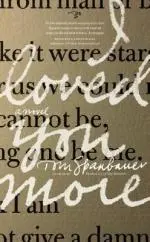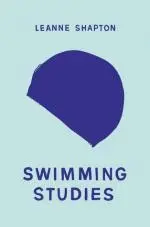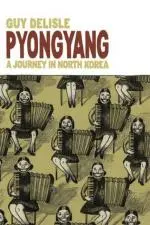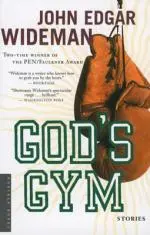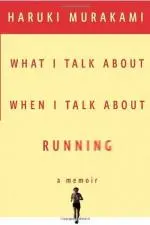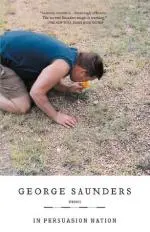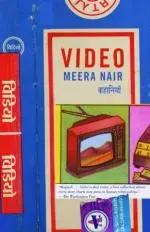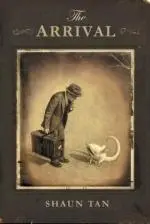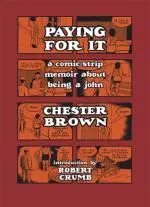This intro is impossible. So I'll just go for it. If you read this and start feeling that flush of anger in your face, or if you start chewing the insides of your cheeks with fury, all I can ask is that you read a little further and give me a chance here.
I'm a straight white male. Always have been, always will be. Probably. There was that one rugby player who got hit in the head, was knocked out cold, and then said he woke up gay. But that seems to be an oddity, and one that I doubt I could repeat. I know nothing of rugby.
I'm not going to pretend. Straight white male has been easy for me. There's a ton of stuff for me to read, watch, whatever. Most of the time if I pick up a video game or a comic book, I'll see a face that looks like mine staring back. Well, okay. Not like MINE. A face that could be a distant relative of my most handsome distant relative. A face that says smart things and says them through perfect teeth. But you get the idea.
So this list isn't about making sure there's stuff BY straight white males FOR straight white males to read. We all know there's plenty. It's not about straight white pride of some kind, fighting against some sort of secret multicultural, GLBT cabal that's trying to...I don't even know. I honestly asked someone who used the term "gay agenda" what that meant, and I never got a good answer. This list isn't addressing "reverse racism" either because that term baffles me. Does reverse racism mean you think another race is really great? Or is it about pronouncing racial slurs backwards so they come out like Harry Potter spells? It's just too confusing.
Here's what this list is about.
Straight white men are encouraged to get outside their straight white bubble from time to time. This is a very good thing for us to do. The only problem I see is, well, as an avid reader and as a librarian who recommends books professionally, what I often see promoted as a book that will help someone think a little differently...a lot of those books are great, well-written pieces of literature that can change how a person thinks and acts. The only thing I'm not sure of is whether they always make for great starting points.
Let's pretend I had to recommend books to someone who was an avid fantasy reader looking to dive into sci-fi. My technique would be to take something that has some fantasy elements, something of the familiar, mixed in with the sci-fi. Terry Pratchett, for example, is a mixture of fantasy and sci-fi who can serve as a bridge between those worlds. His books might not be hardcore sci-fi, not like a space opera or something. But the goal in recommending Pratchett would be to start the reader down the path to finding space opera on her own.
So this book list, these are books for people who are looking to get out of that straight white male realm a little, but are maybe a bit nervous. Hesitant. Unsure of where to begin.
Oh, and you'll notice books on this list written by straight white men. It would be easy to write a book list that checked off the boxes. "We've got a guy from Japan, a lady from Iran, a transgender 95 year-old working in Antarctica..." Okay, maybe the last one wouldn't be a cinch. But checking those boxes, that doesn't seem terribly useful. Instead, I had two criteria:
1. The books are all damn good to read.
2. Each book made me think differently about race, sexuality, gender, SOMETHING.
Please understand that I'm doing my level best to learn about and understand other cultures, ideas about sex, ideas about love, and just generally ways that people who are more or less like myself make their way through life. This is by no means a thorough cultural education, merely the water in which one can dip a toe. Warm water meant to entice the reader into reading further and further from the shores he knows until, eventually, he finds himself comfortable in unexplored, open water with no land in sight.
Finally, let's address the inevitable question: "What's the point of this list if I'm not a straight white male?"
That's easy. See Criterion 1.
![]() 1. 'I Loved You More' by Tom Spanbauer
1. 'I Loved You More' by Tom Spanbauer
"Faggot" was never one of my slanderous words of choice. I was in the butthead/butthole/buttface insult camp. Butt-centric name-calling was really more my speed. But I grew up in the 80's and 90's when the word "fag" wasn't as loaded as it is today, or at least didn't feel that way to a straight white male living in a podunk town, so it's a word I've heard more than a few times.
I'm not here to say that some words can be used at some times, or that it's all about context, or anything, really. If you're curious about my personal take on words, it's that each person needs to make a personal decision about what to say and also what to let pass without comment.
This opinion is recent, and it's because of this book.
This book, more than anything I've read, helped me to understand the word "faggot." Specifically, the kind of terror the word might hold for someone. The book bends a lot of the other notions I had about sexuality too, but the most surprising change for me came in a single scene:
But that night, in that moment, those first two times fighting for my life were right up close to me, inside me, inside, in my fists, the breath in my chest. Went on forever that moment — the adrenaline making me pop.
But I couldn't figure it out. Why was Hank taking this fight on? The skinhead dude was an asshole but not worth a minute of our time. Plus there was twenty of them and two of us.
Fag.
Fag. Out of that moment fag was what was sucking out all the air.
I won't play language police. I'm not the right buttface for that job. But if you want to understand the harm words can do, if you want to really understand rather than be told again, read this book.
![]() 2. & 3. 'Swimming Studies' by Leanne Shapton paired with 'The Chronology Of Water' by Lidia Yuknavitch
2. & 3. 'Swimming Studies' by Leanne Shapton paired with 'The Chronology Of Water' by Lidia Yuknavitch
Swimming Studies makes a great, quieter companion to Lidia Yuknavitch's The Chronology of Water, and through the lenses of swimming goggles you get just the tiniest idea of what it's like to have a woman's body.
These books are absolutely fascinating. I'm shy to say it, but I had no idea about the amount of change a woman's body goes through in a lifetime. And how much a woman's relationship to her body can change as well.
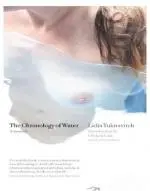 You can pick one of the two if you'd like. Swimming Studies is a gentler read in some ways. It's a strange, meditative book whereas Chronology is beautiful in its savagery and there is very little held back. For my money, I'd read them as a pair, starting with whichever book you think suits you best.
You can pick one of the two if you'd like. Swimming Studies is a gentler read in some ways. It's a strange, meditative book whereas Chronology is beautiful in its savagery and there is very little held back. For my money, I'd read them as a pair, starting with whichever book you think suits you best.
By the time you read both of these, I'm not going to say that you'll understand what it's like to live in a woman's body. What you will understand is how little you know, and you'll be prepared to surrender to the fact that you'll never understand everything.
![]() 4. 'Pyongyang: A Journey In North Korea' by Guy Delisle
4. 'Pyongyang: A Journey In North Korea' by Guy Delisle
The beauty of this book, besides the fact that it's a rare glimpse into North Korea from an outsider's perspective, is the way in which Delisle balances respect for a culture with the ability to occasionally stop and say, "Okay, that's just ridiculous."
He's not overly disrespectful or dismissive of North Korean culture. Yet he's also not afraid to point out that certain things are patently silly, such as donning special slippers to walk through a gigantic museum of gifts from other countries.
It's important to try and experience something new, but once in a while you'll come across something that just seems too crazy to stomach. You might even get a chuckle out of it. Don't worry. You're not a bad person.
![]() 5. 'God's Gym' by John Edgar Wideman
5. 'God's Gym' by John Edgar Wideman
John Edgar Wideman is the guy who's left out of the good company he deserves. Raymond Carver, John Cheever, Robert Olmstead. I'm not going to say that short stories are a straight white man's boys' club because that would be denying the influence of Flannery O'Connor and the endless talent of Amy Hempel. That said, Wideman isn't on the list as often as he should be.
He also doesn't seem to make the list with Alice Walker, Walter Mosley, or Zadie Smith. Wideman is a great writer whose work can't get the credit it deserves.
Get him on the list. Read his stuff. Fever is another excellent, sometimes-experimental collection, and Brothers and Keepers is a memoir that's hard to forget. For my money though, it's God's Gym all the way.
![]() 6. 'What I Talk About When I Talk About Running' by Haruki Murakami
6. 'What I Talk About When I Talk About Running' by Haruki Murakami
More than just a great read (or a great listen if you're a runner and dig audiobooks), Murakami's meditation on running long distances not only serves as a great introduction to the author, but it also provides a very non-Western, non-American idea of athleticism.
Running, for Murakami, is about living a healthy, holistic life. He wanted to have a long writing career, and in order to do that he needed to stay healthy. So, running.
Murakami's point of view is very pragmatic, and his style is blunt without that in-your-face feeling. Reading this book will make you think differently about writing, running, and even possibly a couple of your favorite writers, as Murakami discusses his work translating F. Scott Fitzgerald and Raymond Carver.
![]() 7. "My Flamboyant Grandson" by George Saunders
7. "My Flamboyant Grandson" by George Saunders
He looks like no one else, acts like no one else, his clothes are increasingly like plumage, late at night he choreographs using plastic Army men, he fits no mold and has no friends...
Master of the short story, Saunders' piece from In Persuasion Nation is narrated by a grandfather working to make peace with his grandson's proclivities in a future that is sort of like a mix between our present and Blade Runner's advertising nightmarescape.
What's challenging and wonderful about the piece is the way the grandfather loves the boy, yet his inner monologue is ready to admit that it doesn't necessarily come easily for him. Not that the love doesn't come easily. The expression of that love.
![]() 8. 'Video' by Meera Nair
8. 'Video' by Meera Nair
Fifteen years we've been married and now you want me to do this—this thing!
"Video" from Meera Nair's collection by the same name tells the story of a wrecked marriage, the closing of intimacy because of a man's selfish and inexcusable act.
After the husband and narrator of the story sees a pornographic movie for the first time, he forces an attempt to replicate one of the, uh, stage directions at home.
What's fascinating is to see a marriage that was open enough that this could be discussed fade into something where the couple becomes less than roommates.
This story was penned by a woman writing a man's voice, and it's wholly, unquestionably a man's voice. Even when the main character acts in heinous fashion, I wouldn't call the narration unsympathetic. If you've ever said any variation of the phrase "women writers don't speak to me" I'd recommend a hard look at this story. It might change your ideas of what a woman can and can't do with words, and more importantly, what a woman can or cannot understand about a man.
![]() 9. 'The Arrival' by Shaun Tan
9. 'The Arrival' by Shaun Tan
An excellent example of "show, not tell," this wordless graphic novel is a beautiful and disorienting look into the experience of an immigrant in a new country.
Like most good sci-fi, The Arrival shows us something about ourselves by making the point through something we don't quite recognize. It helps eliminate the politics of the situation and distil the terror, confusion, and overall bizarre experience that immigration can be.
Rather than explaining to the reader the difficulties of being a stranger in a new place, the book takes the reader right through the entire thing. You'll walk away from this book with a much better idea of what it means to be a complete stranger in a (super, super) strange land.
![]() 10.' Paying For It' by Chester Brown
10.' Paying For It' by Chester Brown
If you're a white boy who always figured he'd grow up and marry his high school sweetheart, Brown's accounting of several years he spent seeing prostitutes (legal where he lives) will leave you scratching your head.
The encounters can feel a little cold, clinical, but along the way Brown engages in a lot of conversations with people who ask a lot of questions about what love is, how sex fits in, all that stuff.
The appendices at the end, in my opinion, are skippable. And you might find yourself not particularly fond of Brown. However, the viewpoint of straight, white male sexuality is channeled through a very different pathway. Technically, what Brown describes is a series of straight sex events. However, the book proves that there are many variations on the theme when it comes to sex, and his particular variety will most definitely challenge many peoples' ideas about what sex and relationships really are.
Anyway, that's it. Don't be a buttface. Take those shoes off, get those toes in the water.

About the author
Peter Derk lives, writes, and works in Colorado. Buy him a drink and he'll talk books all day. Buy him two and he'll be happy to tell you about the horrors of being responsible for a public restroom.
